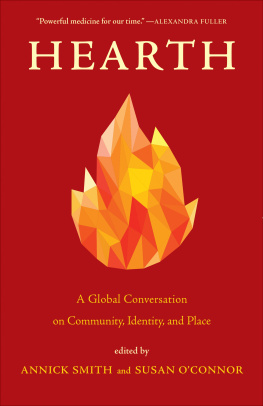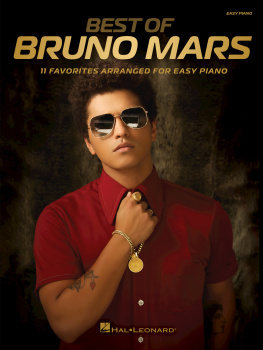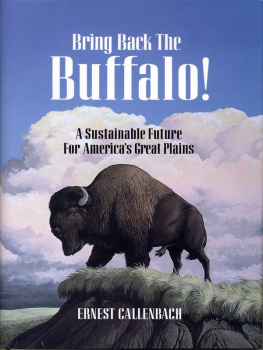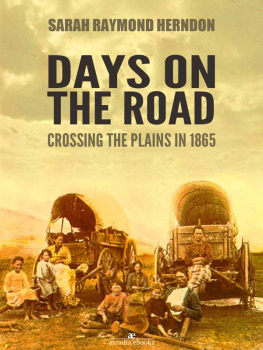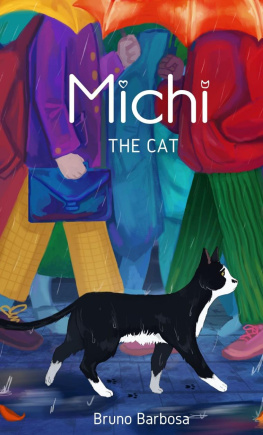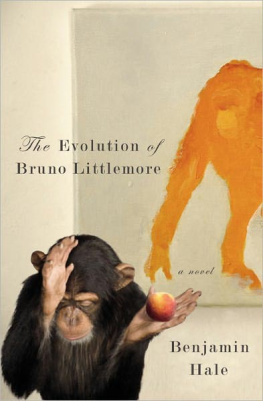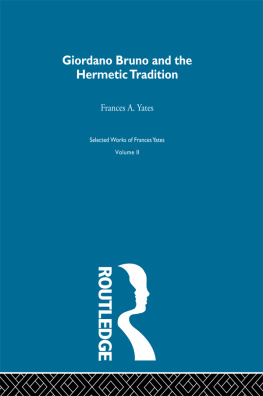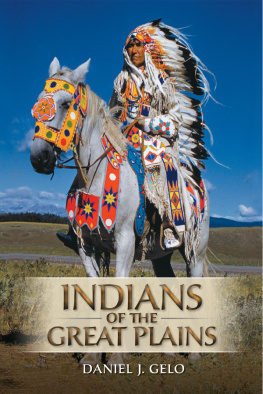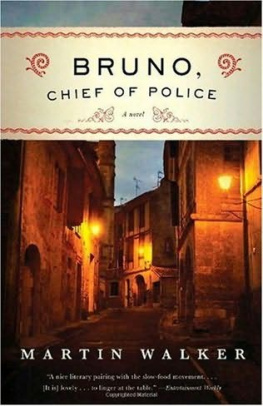Praise for Crossing the Plains with Bruno
Annick Smith has one of the most graceful and vital relationships with time that I know of. As we see in Crossing the Plains with Bruno, she comes by it naturally. Her entire lifelike Brunoshas been one magical trail. I think that her grace comes from the comfort of her ability to inhabit both the past and the moment with that wonder and vitality. We in the West are lucky to have her, and this lovely, honest book.
RICK BASS, author of All the Land to Hold Us
Crossing the Plains with Bruno is a wise and wonderful book.
JANISSE RAY, author of Ecology of a Cracker Childhood
Crossing the Plains with Bruno is proof of Martn Prechtels belief that the domesticated dog in particular is an ancient master of grief. Also of joy. I knew Bruno, and I always felt when Id see him barreling around Annicks place up the Blackfoot that the doctor was in the house. How great to find him gleefully panting and stealing our food once more as the grande dame of Montana letters resurrects a lifes worth of peaks and valleys, grieves and praises our lost and living heroes, shares her emblematic personal history, and, in beneficent, lifelong, living color, herself embodies the wild beauty and endearingly offbeat culture of her tenaciously loved best place.
DAVID JAMES DUNCAN, author of The Brothers K



| Published by Trinity University Press San Antonio, Texas 78212 |
Copyright 2015 by Annick Smith
Silhouette and cover design by Madeleine Budnick
Book design by BookMatters, Berkeley
Frontispiece: Photograph by Roy Meeks
978-1-59534-670-4 (ebook)
All rights reserved. No part of this book may be reproduced in any form or by any electronic or mechanical means, including information storage and retrieval systems, without permission in writing from the publisher.
Billy Collins, three verses from Dog, from Questions about Angels, copyright 1991. Reprinted with permission of the University of Pittsburgh Press.
Robert Dana, Dog Music, copyright Robert Dana. Reprinted with permission of the Estate of Robert Dana.
Portions of Dog Song, anonymous, Pima Indian, version by Joseph Duemer, copyright Joseph Duemer. Reprinted with the permission of Joseph Duemer.
Trinity University Press strives to produce its books using methods and materials in an environmentally sensitive manner. We favor working with manufacturers that practice sustainable management of all natural resources, produce paper using recycled stock, and manage forests with the best possible practices for people, biodiversity, and sustainability. The press is a member of the Green Press Initiative, a nonprofit program dedicated to supporting publishers in their efforts to reduce their impacts on endangered forests, climate change, and forest-dependent communities.
The paper used in this publication meets the minimum requirements of the American National Standard for Information SciencesPermanence of Paper for Printed Library Materials, ANSI 39.481992.
CIP data on file at the Library of Congress
19 18 17 16 15 | 5 4 3 2 1
For the dogs who have graced my life:
Sylvie, Shy Moon, Rasta, Betty, Little Red Dog, and especially Bruno and Lulu
Time unseen time our continuing fiction however we tell it eludes our dear hope and our reason.
W. S. MERWIN
CONTENTS
The poet and novelist Jim Harrison has said he measures the passage of time by the dogs he has had. So do I. The worst thing about dogs, Jim also said, is we outlive them.... Hopefully not much longer. Having passed the seventy-five-year mark, both Harrison and I are ready for the moment when our pooches will outlive us. If not this batch, surely the next. And being the lost instead of the loser may be a good thing. Let them cry over us!
Writing about animals, said the poet Mark Doty in his memoir Dog Years, is an attempt to bring something of the inchoate into the world of the represented. This is an impossible task. We who tell stories about the animals we love are trying to bridge the void between beings that live full lives without language as we understand it and those of us immersed in words. We know the gap cannot be bridged, and yet we are compelled to give it a try. It is like writing about love, which Doty says, is our most common version of the unsayable.
Dogs may or may not be aware of the fragility of their humans, but we owners of pets are aware of the predictable mortality of our animal companions. Such knowing does not stop a lover of animals. Loss, we have learned, is the price of love, and love is what we are after, no matter the pain. Which brings me to Bruno, the chocolate Lab who will be a major character in this book, my traveling companion on the journey that is its core, and one of the loves of my life.
Bruno was four years old when this story began. He weighed ninety-five pounds and had functional testicles. His head was massive, his eyes yellow, and his muzzle soft and pink. Russet at the ears with fur colors deepening to chocolate brown, he was tall for a Lab and strongly muscled. Although Bruno could seem fearsomeespecially when charging straight at you with his neck fur raisedhe acted like a giant pup, and would remain mellower than any dog Ive had, to the point of marshmallowdom. Bruno loved people, especially young women, and also Kevin, our neutered black cat, whom he tried to bugger. He was a talking dog, making moaning sounds high pitched and keening or low and guttural, which he expected you to comprehend. Like Chewbacca, my son Alex explained. I looked blank. The big hairy creature in Star Wars. Oh, the lovable monster.
I was always comforted by Brunies warmth. He never whined. He barked only at treed grouse, bears, bulls, and intruding dogs and paid no attention to deer unless they leapt across the trail in front of him. A scavenger like all dogs, he ravaged carcasses left by hunters and munched on manure. He went nuts over grouse but, oddly for a retriever, did not like the smell of ducks. Elk interested him, though not enough for him to chase them off the meadow when they appeared at dusk in spring. Cattle were different. Bruno loved to drive them away when they grazed close to our fences. I would yell no cows, which usually stopped him. But if a cow and calf overstepped his boundaries, he charged them, tail held straight behind and ears flopping.
Bruno believed his most serious duty was to chase coyotes. If one dared come onto our meadow hunting gophers, he took after it in a blur of speed. When the coyote reached the woods, Bruno turned back, but before coming home he had to trace the scent trail backward, zigzagging from rock pile to rock pile until he lost track.
Often, when I let Bruno out in the morning, hed lift his leg and peer north toward Bear Creek canyon as if pointing. This was my cue. Id lunge in his direction. He lowered his head like a fullback and avoided me easily. Then Bruno sauntered downhill past our log barn to Allen and Evelyns place at the bottom of the canyon, where he hoped to steal the dog food they left on their porch. If their dogs started barking, Brunie would growl, but the big coward ran off when Evelyns tiny terrier nipped at his heels. Then he continued his rounds, hoping to find a female in heat. Usually within an hour, Id spot his thick tail swinging uphill through the tall grass. About fifty feet away he would stop and look at me, guilty but not repentant. Then, head lowered, he slunk toward the house.
Next page

